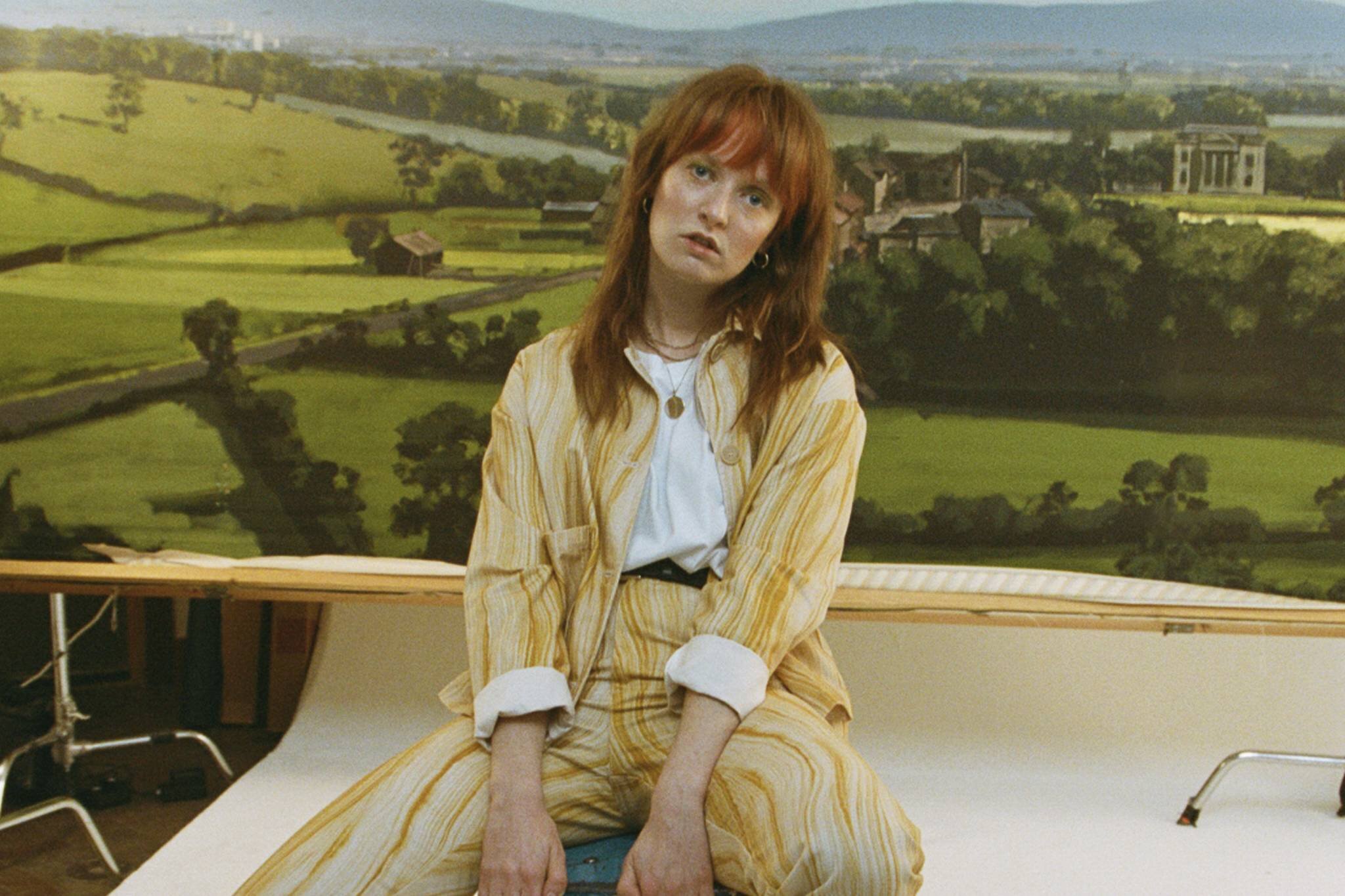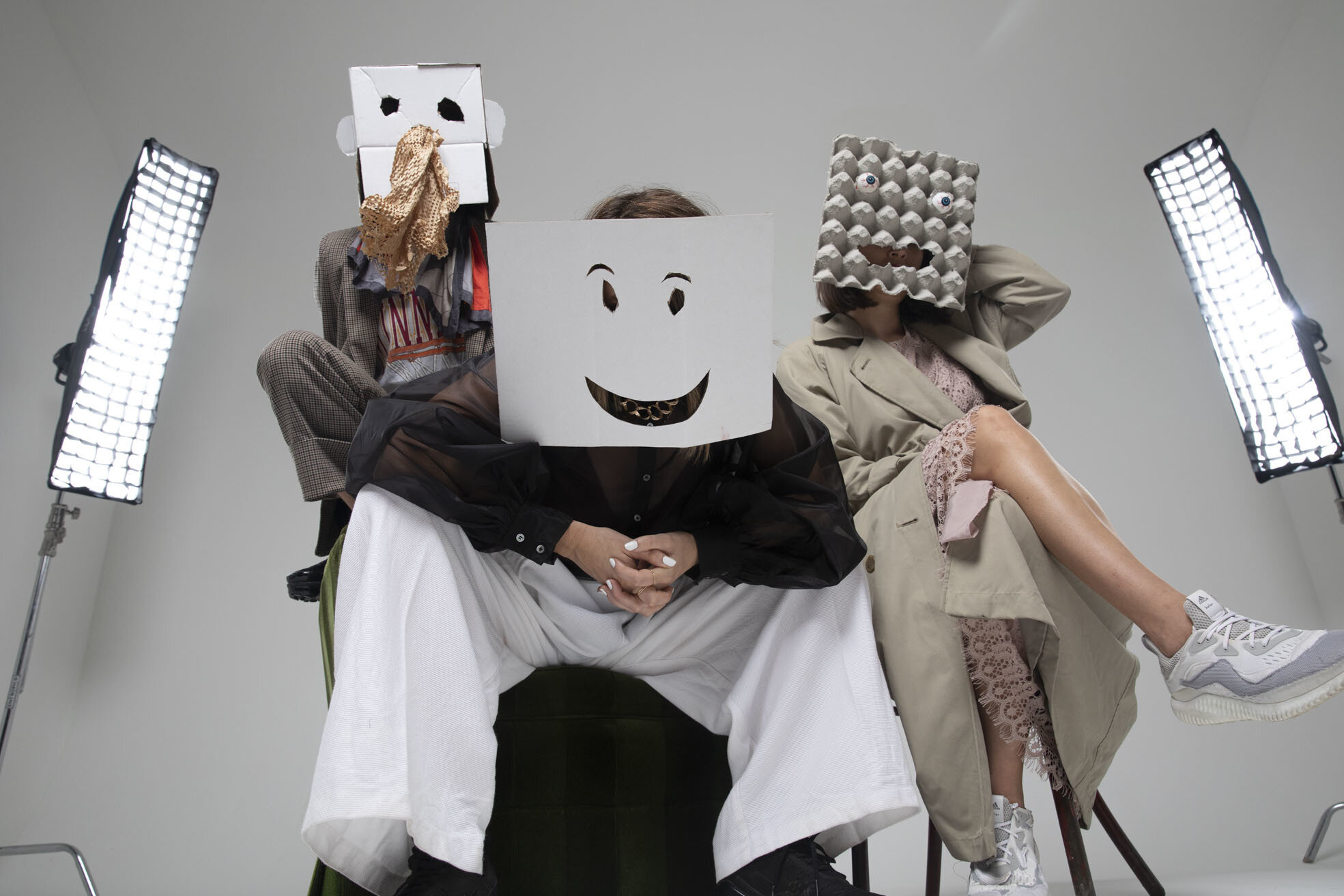Orla Gartland

“The best piece of advice I’ve ever got was that, as an artist, [you should] think that you’re travelling along like a car,” begins Orla Gartland. “You’re travelling as a car, and managers, labels, publishing deals, all these bits, think of them as travelling under you rather than being the things that block you. Sometimes you can be moving and it’s a bit slow, and other times you’ll jet forward…”
According to her analogy, slow and steady might win the race, but after nearly 10 years in the game, Orla is now ready to kick things into high gear.
First learning how to play “jigs and reels” on the fiddle - “Super Irish!” - and moving on to guitar aged 12, the Dublin-born singer began busking with pals, including folk duo Hudson Taylor, when she was a teenager. “I think it was quite a humbling way to get into it, and I learned so much from the two boys in that band,” she reminisces. “They moved to London to find a manager and I just followed them because they were the only friends that I had who played music. Sometimes it’s that simple! All you need is someone that you can see, that is just in reach, that’s doing it, for it not to feel so abstract.”
Arriving and finding herself in a community of fellow musicians who took her under their wing, Orla spent the next few years uploading covers to YouTube, honing her production skills and waiting for the pieces of the puzzle to fall into the right place. “If you think of a traditional band that meets in school, they practice, in theory - this is very cliche - but they practice in the garage for years,” she notes. “I’ve released music for so long, but for so many of these years I was in the garage!”
After years tinkering away behind the scenes, however, Orla’s long awaited debut full-length, ‘Woman On The Internet’, arrives this month. Holding out to create something inherently and unashamedly her, the record finds Orla exploring her own story across 11 folk-tinged, alt-pop gems that she also co-produced. Pulling inspiration from her favourite albums - marking Phoebe Bridgers’ ‘Stranger In The Alps’ as a “perfect” example - she explains that she wanted to craft a record that would mirror a collection of stories from one person, locked together by a certain moment in time.
“I feel like I have more to say now,” she explains. “I think there’s a lot of pressure, especially on young girls in music, to be super young and be doing stuff. ‘Billie Eilish is 13, get on it quick!’. It just took me a while to get where I felt that I was good enough for a full-length.
“My last EP was about a break-up which I’d avoided for a long time because I was like, ‘What a like, duh thing to write songs about’,” she continues. “But then I went through a break-up and understood why break-up songs are so good. I was glad that I got that out of my system, because selfishly I didn’t want my album to be about anybody else. I wanted it to be my stories and my point of view. And I didn’t want it to be sad!”
From exploring identity on ‘Pretending’, to toxic masculinity on ‘Zombie’, to wanting to initiate a Freaky Friday-esque body swap on ‘More Like You’, ‘Woman On The Internet’ finds Orla continuing on that journey of self-discovery. “I think 19-year-old me moving to London, if I’d have known it would take me six years to get my debut album together, would I have been disheartened? Probably!” she smiles. “But I think I’m better off for it, and I think the music’s better off for it.
”I just wanted to make something I was proud of,” she shrugs. “It’s so cheesy, but it’s really easy to make music that you don’t care about, which is really sad. I have so many friends that, for whatever reason, have made something that someone else wants you to make, and that’s just so sad to me. I just couldn’t do it.”
Now, with an album that finally feels truly authentic in her grasp, Orla is also eager to give back to the fans who have been there since her early YouTube days. “I’ve been shocked at how patient and loyal they’ve been,” she beams. “So it feels good to be like, ‘Finally! Here you go!’
“It makes me feel like an album artist,” she continues. “When you’re in the EP space it feels like always the bridesmaid, never the bride. You’re never quite there. But now that I am in that space, thinking about Album Two and Three, even in a really broad way, is not that scary. I think it’s good for me and levels me up in my head. I think I’ve finally made something that I’m happy for other people to hear, you know?”
DIY Magazine August 2021 Issue




